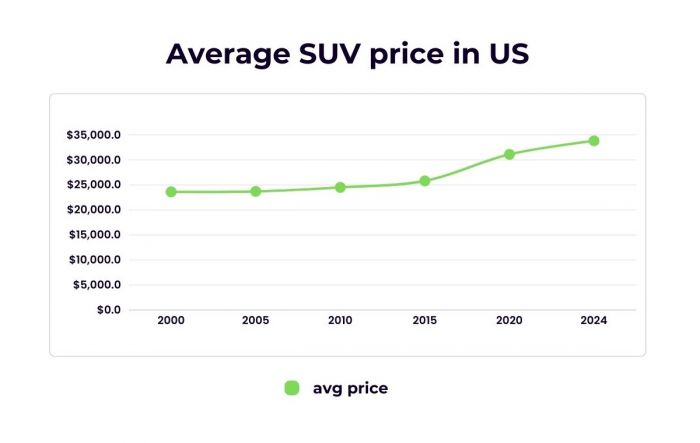If your car suddenly dies while you're driving in the middle of the road, don't panic. Instead, carefully guide the car to the side of the road until it slows down. In the worst-case scenario, use the emergency brake to avoid getting into an accident.
You're probably thinking about why your car suddenly died and how to fix it. If so, continue reading to find out more in this article.

How to Fix a Car That Randomly Dies When Driving?
One of the worst experiences you can have when driving a car is for it to just randomly die on the road. After all, a simple mistake can quickly turn into an accident.
And if you manage to maneuver your car out of harm's way, you still have to get your car back on the road. Don't worry, though, as the usual suspects are quite easy to fix:
1) Look At the Dashboard
One of the first things to check after your car dies randomly is the dashboard. Just a quick look there can tell you a lot about the problems you're facing.
If the dashboard's lights turn off at the same time as the engine dies, you're dealing with a faulty ignition switch. But a bad alternator can also cause your dashboard's lights to turn off, so make sure to check both.
Check the tachometer on your car's dashboard as well. If it does not work, then either the crankshaft position sensor or the camshaft position sensor is the root cause of it all. You will want to call a mechanic for help or bring your car to the nearest auto shop.
2) Check The Battery
After checking the dashboard, next up is the car battery. There are plenty of reasons why this is the cause of your dilemma.
First, check if your battery's terminals are clean and free from corrosion. Any grime or foreign material on the terminals can act as a barrier, preventing power from flowing correctly through the rest of your car.
Second, make sure that there are no loose connections. Similarly, any space between the terminals and their subsequent attachments can lead to a loss of power as well, thereby causing your car to run out of steam.
And lastly, your car's battery can be out of juice. When that happens, there may be not enough power to sustain the vehicle while driving.
Also, make sure to check for any damages like cracks or leaks on your car battery. They're also likely to stop your car dead in its tracks.
Cleaning out the battery terminals and tightening the connections is a step towards getting your car back on the road. In some cases, you will need to jump-start your car's battery or replace it with a new one. Both are doable solutions for any car owner.
3) Replenish The Fuel Tank
Low fuel is another reason why your car suddenly died. You don't hit the road when you're running low on gas. But there are other things you need to consider.
It's possible that you still have some fuel left in the tank to get you to your destination. So, you end up foregoing refueling the gas tank. However, that can cause your engine to stall in some scenarios.
When doing high-speed turns, there's a possibility that the fuel will end up opposite the pump due to the force. As a result, the fuel pump will end up sucking on air instead.
Another likely reason is that your car has a faulty fuel gauge. So, always check the fuel tank, regardless of what the fuel gauge says. That way, you'll know if you just need to replenish your car with fuel or if there's another issue at hand.
4) Refill The Radiator
When your car's engine starts overheating, it becomes more susceptible to dying randomly while on the road. So if you notice that the temperature gauge is incredibly high, it's likely that you're dealing with a leaky radiator.
Thankfully, this is quite easy to fix. Let your car's engine cool off for at least half an hour or more. You don't want to accidentally burn yourself.
Then, twist open the radiator cap and, using a flashlight, check whether there's still water inside. If there's little to no water left, you just need to fill it up until it starts overflowing.
Take note that if there's indeed a leak, this is merely a stopgap solution. As soon as you get your car on the road, bring it to the nearest auto shop to patch up the leak in the radiator.
5) Attach A Pressure Gauge
Another likely cause is the fuel pressure. If there's an imbalance, the ratio of air to fuel will be off, causing poor engine performance. This will end up with your car randomly dying on the road each time you start it up.
To determine whether or not this is the issue, attach a manual pressure gauge to the fuel line. You can also use a diagnostic scanner if your car has a pressure scanner. However, you run the risk of the sensor being faulty.
Then, look up the fuel pressure specifications of your car online or in the car manual. And if the numbers don't match up, you will have to check the other parts of your car, like the fuel filter, the fuel pump, and the fuel pressure regulator.
6) Use A Multimeter
For older car models, it can be quite difficult to pinpoint exactly where the problem is. Some car owners rely on common sense and experience when it comes to diagnosing the problem.
A multimeter works best in this situation, especially for those who are relatively new car owners. With this device, you can figure out whether or not your car is suffering from a dead battery, a faulty alternator, or an error in the charging system.
7) Check Trouble Codes
Nowadays, modern cars have a built-in diagnostic system to help car owners detect what issues their car is facing during times of crisis. This makes the whole process much easier, as you don't have to check every system in your car just to find the problem.
To check the trouble codes, all you need is an OBD2 scanner that works with your vehicle. From there, you just need to attach it to the port underneath the dashboard and check what issues are plaguing your vehicle.
You can buy an OBD2 scanner online and check the issues yourself, or you can bring your car to an auto shop. There, they can read out the issues for you and work on them, saving you the time and hassle of figuring out the root cause.
How to Reduce the Risk of Your Car Dying Randomly When Driving?
Now that you know what to check when your car dies randomly and how to resolve each one, it's time for you to learn how to prevent this from happening in the first place.
For starters, learn to keep track of your gas levels at all times. Don't drive around with only a bit of fuel left in the tank, or else the chances of the fuel pump not working correctly are high. Also, don't just rely on the car's fuel gauge; take a peek into the fuel tank to check if you still have enough gas.
Also, avoid leaving external devices connected to your car's charging points. These can cause severe strain on your car's battery.
And while you're at it, check your battery at least once a week and make sure that the terminals are free from corrosion. Also, tighten up any loose connections to prevent your car from dying suddenly while on the road due to a lack of power.
Consider investing in a trickle charger as well. This allows you to slowly recharge your battery overnight. By doing this, you avoid a situation where you end up with a dead battery in the middle of a drive.
Last but not least, bring your car to the nearest auto shop for yearly maintenance. With the installation of so many systems in recent car models, it can be quite difficult to keep track of them all. As such, keeping them up-to-date and in working condition improves a car's performance and prevents you from getting into sticky situations.
Conclusion
Your car dying randomly while driving is a cause of concern for any car owner. However, you must always remain calm and not panic if you find yourself in that situation. That way, you avoid getting into a fatal accident.
After guiding your car out of harm's way, make sure to check the dashboard of your vehicle for immediate signs of a system error. Then, check your battery, the radiator, and the fuel tank, as these three are the most common issues that drivers face and are the easiest to resolve. For other problems, don't hesitate to call others for help and bring your car to an auto shop to have a mechanic resolve the issue.
About the authors
The CarAraC research team is composed of seasoned auto mechanics and automotive industry professionals, including individuals with advanced degrees and certifications in their field. Our team members boast prestigious credentials, reflecting their extensive knowledge and skills. These qualifications include: IMI: Institute of the Motor Industry, ASE-Certified Master Automobile Technicians; Coventry University, Graduate of MA in Automotive Journalism; Politecnico di Torino, Italy, MS Automotive Engineering; Ss. Cyril and Methodius University in Skopje, Mechanical University in Skopje; TOC Automotive College; DHA Suffa University, Department of Mechanical Engineering






Add comment